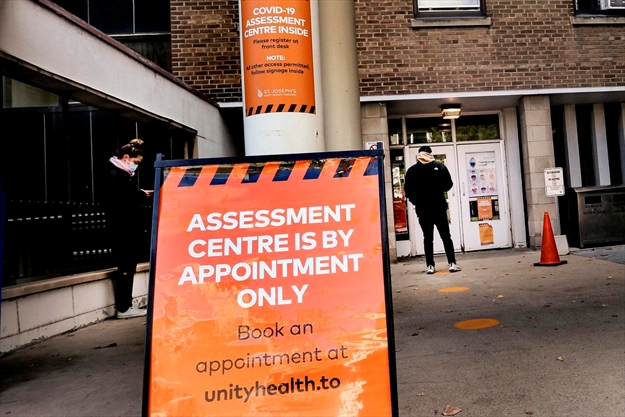Ontario’s chaotic testing system has opened the door to two-tier health care.
Already, private clinics are in on the game, offering tests at between $50 and $250 for those with the wherewithal to pay out-of-pocket charges.
The incentive is a familiar one. By paying extra, private payers can skip the lineups that plague the public system. The danger is equally familiar. Access to necessary medical tests is no longer determined solely by need. Instead, it is biased in favour of the better-off.

The Globe and Mail, which first reported on this development, says that business at the private clinics is booming. And no wonder. In Ontario at least, public testing for the coronavirus has been confused and contradictory.
For a while, the provincial government talked of making testing widely available. Now, officials say, they want to focus on those most likely to be infected.
For a while, anyone wanting a test could line up at a public assessment centre. Now, testing is done by appointment only.
For a while, kids with runny noses had to be tested before being allowed to return to school or child care centres. Now, runny noses are OK. Testing is no longer required for children with mild symptoms.
Some (but not all) Ontario pharmacies offer free tests. But they offer them only to those who show no symptoms of COVID-19.
If you do show symptoms and want to be tested, you have to get through to a testing centre by phone or internet — not an easy task — and make an appointment.
Or you can pay a private clinic and avoid the wait.
Some argue that fee-charging private clinics ease the pressure on the beleaguered public system. If there were an infinite number of tests and labs to process them, that might be true. But in the real world, resources are limited.
If a lab is busy processing results from a private clinic, it is — by definition — unavailable to the public testing system.
Essentially, this was the argument made last month by British Columbia Supreme Court Justice John Steeves when he ruled that governments could constitutionally limit access to private health care in order to protect public medicare.
So far, government reaction to private testing has been muted. Federal Health Minister Patty Hadju has said she will look into the practice.
Under the Canada Health Act, the federal government has the power to financially punish provinces that allow private clinics to charge user fees.
Whether Ottawa is willing to use this power is another question. Politically, Justin Trudeau’s Liberal government finds it convenient to get along with Ontario Premier Doug Ford. Trudeau may not want to rock the boat.
Moreover, any move by Ottawa against private testing might seem somewhat hypocritical. As a perk of office, federal MPs already have access to private COVID-19 testing services. Unlike their constituents, they need not stand in line or wait on hold.
Ontario, meanwhile, has been carefully noncommittal. Provincial Health Minister Christine Elliott says she has forbidden the sale of government swabs to private testers.
But she has not addressed the core issue — whether she will continue to let private clinics charge user fees for medically necessary services.
Given the state of play in Ontario, she may not want to be seen cutting testing of any type. Indeed, there may be a way to enlist the testing capacity of private clinics in a manner that is consistent with the principles of medicare.
But that’s not where we are headed now. Now we are on the familiar path toward two-tier health care, where those who can afford pay more, get more.
Thomas Walkom is a Toronto-based freelance contributing columnist for the Star. Reach him via email:
